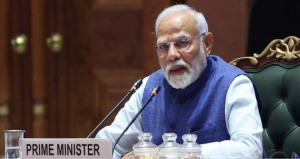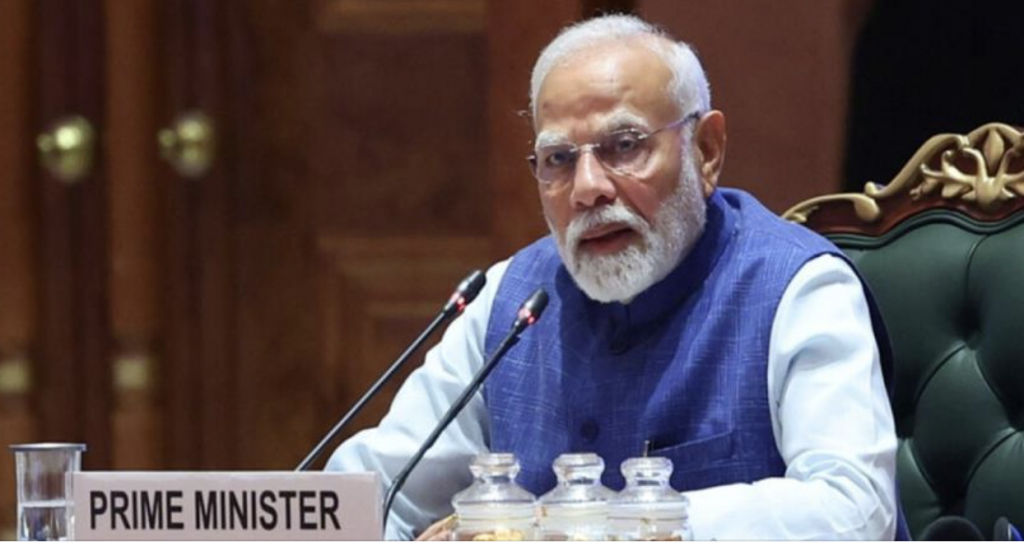NEW DELHI: The BJP-led NDA government has approved infrastructure projects worth Rs 3 lakh crore, including linking 25,000 unconnected villages to road networks and building a mega port at Wadhawan in Maharashtra, during its first 100 days in office. Besides infrastructure, the focus of the government has also been on agriculture by increasing the minimum support price for Kharif crops, removing the minimum export price on onions and basmati rice and hiking the duty on the import of crude palm, soybean and sunflower oils. Prime Minister Narendra Modi assumed office for the third consecutive term on June 9 this year. The thrust of the Modi government has been on providing stability on the policy front with a flexible approach to adopt certain changes to remove teething problems without diluting the original concept. A case in point is the Goods and Services Tax which has undergone 140 changes to reduce friction. The government approved the Wadhavan Mega Port in Maharashtra for Rs 76,200 crore, which will be among the top 10 ports in the world. Under the Prime Minister’s Rural Roads Scheme-4 (PMGSY-IV), approval was granted to the construction/upgradation of 62,500 km of roads and bridges to connect 25,000 unconnected villages, with central assistance of Rs 49,000 crore. Many of these unconnected villages have a population of less than 100. The government has also approved strengthening India’s road network with an investment of Rs 50,600 crore, which includes a nod to eight National High-Speed Road Corridor Projects spanning 936 km. Modi also carried out the first blast to mark the beginning of the construction of the Shinkhun-La Tunnel, to connect Ladakh with Himachal Pradesh. The government has approved eight new railway line projects for faster and convenient travel by train generating 4.42 crore human-days of employment. The draft of the new National Cooperative Policy, prepared by a national-level committee, has been prepared and is being finalised. The government has also launched a new fund named Agrisure, aimed at revolutionising the agricultural sector and supporting startups and rural enterprises. In the civil aviation sector, the government approved the development of the Lal Bahadur Shastri International Airport in Varanasi and new civil enclaves at Bagdogra in West Bengal and Bihta in Bihar. New airstrips will also be built at Agatti and Minicoy in Lakshadweep islands. The government has also approved the expansion of Phase 3 of the Bangalore Metro, Pune Metro, and the Thane Integral Ring Metro Rail Project. In benefits to the middle class, no tax will be levied on income up to Rs seven lakh and salaried individuals can save up to Rs 17,500 in taxes. The standard deduction increased to Rs 75,000 and the exemption limit for family pension was raised to Rs 25,000. A comprehensive review of income tax rules will be conducted within six months to make them concise, clear, and easy to understand. For government employees, a Unified Pension Scheme has been implemented wherein employees with 25 years of service will receive 50 per cent of their average basic salary as a pension. The third iteration of the One Rank, One Pension scheme will be implemented for security forces and their families. Under the ‘Pradhan Mantri Awas Yojana’, 3 crore houses were approved which include one crore houses under the urban scheme and two crore homes for construction in rural areas. Till date, 4.27 crore houses in both urban and rural areas have been built under the scheme. Under ‘PM Surya Ghar Muft Bijli Yojana’, solar energy systems have been installed in over 2.5 lakh homes between June and August 2024. An environmentally friendly public transport system will be developed through the ‘PM-eBus Sewa’ scheme and approval has been given for the purchase of e-buses with assistance of Rs 3,400 crore.


